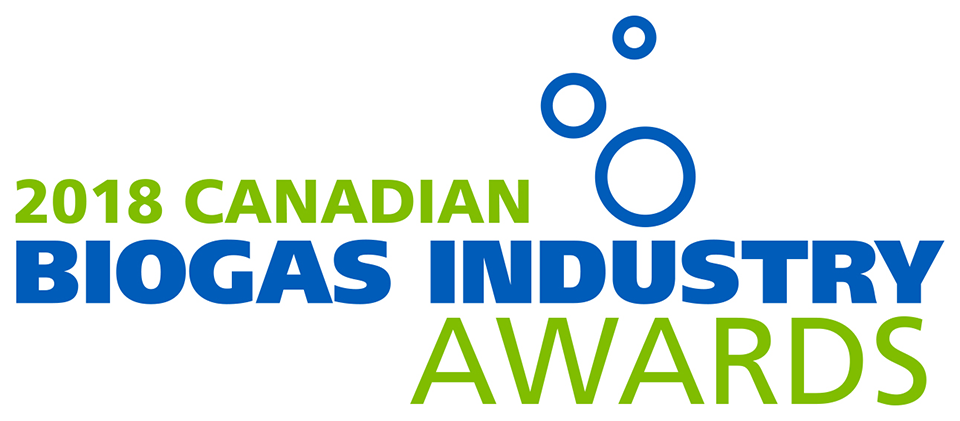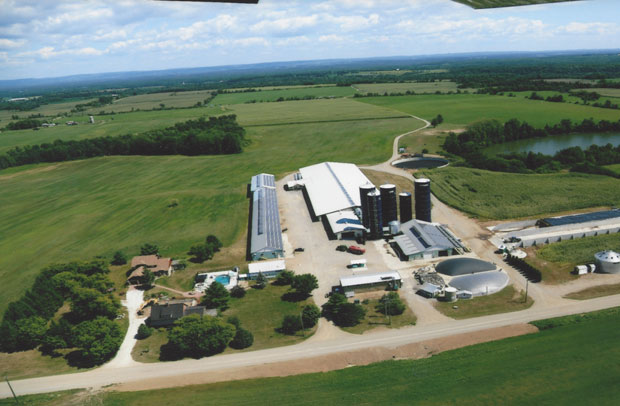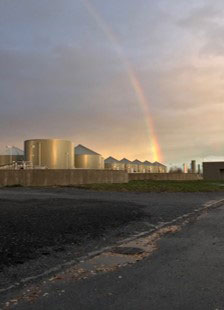
Congratulations to the Recipients of the First Annual Canadian Biogas Industry Awards
The recipients of the first annual Canadian Biogas Industry Awards were announced on March 22nd, 2018 during the Networking Dinner at the Value of Biogas East in Gatineau, QC. The selected winners demonstrate leadership in the sector and the Canadian Biogas Association is pleased to recognize their positive contributions to biogas in Canada.
Biogas Champion - Paul and Fritz Klaesi


Paul and Fritz Klaesi are Canada’s original biogas champions. Paul and Fritz built the first ‘modern’ on-farm biogas system in Canada in 2002 at their dairy farm in Cobden Ontario. Very quickly they saw the opportunity to both improve the digester and create opportunities for others to get involved in the sector. They pioneered the addition of off-farm materials, patiently working with government to get the paperwork process working. Paul used his electrical experience to overcome hurdles with the electrical utility. They used their site as a demonstration site for new technology. They opened up their operation to enable research into pathogen destruction, greenhouse gas emissions reductions, feeding off-farm materials, and digester optimization. They shared information on tours, in videos, and at conferences and workshops. Paul was the founding President of the Agri-Energy Producers’ Association of Eastern Ontario, the forebearer of today’s Canadian Biogas Association. They have collaborated with innumerable members of the biogas sector here in Canada over the years. Today Paul and Fritz are transitioning their farm digester to the next generation of Klaesi entrepreneurs, but they continue to be active. Paul recently championed on-going dialogue to with the Canada Revenue Agency about taxation issues for farms when transferring a corporate biogas asset from one generation to the next. Through it all, Paul and Fritz have demonstrated kindness, grace, and generosity, always keeping an eye on the future.
Project of the Year - The City of Saint-Hyacinthe


The Saint-Hyacinthe RNG facility is a milestone project for the province as the City of Saint-Hyacinthe is the first municipality in Québec to take organic waste and turn it into RNG for its own use and for injection into the local pipeline. Development of this project is a response to a provincial policy that will ban the landfilling of organic waste starting in 2020. Not only is the City taking an early and proactive approach to the policy, the project will enable the City to cut its energy costs, reduce greenhouse gas emissions and produce clean energy for local consumption. Since 2010, the City has been treating its wastewater sludge with biométhanisation. Upgrading of the biométhanisation facility involves increasing the stream of organic matter its processes to include residential compostable waste from 23 surrounding municipalities and agri-food waste from local businesses and installing equipment to upgrade raw biogas. Surplus RNG will be sold to the largest gas distribution company in Québec. Tapping into the potential of waste recovery can turn what once was a cost centre into a strategic asset, one that generates savings and revenues while reducing the collective environmental footprint.
Return to CBIA homepage.

